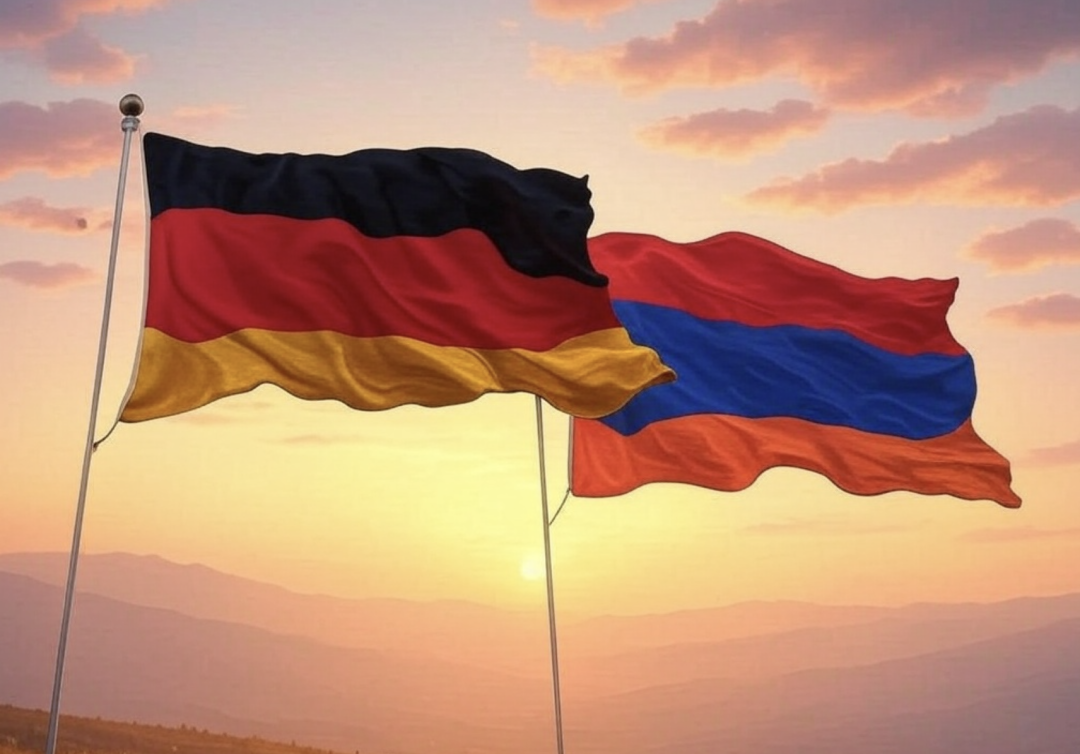
German President Steinmeier Visits Armenia, Strengthening Bilateral Relations

On March 31, German President Frank-Walter Steinmeier visited Armenia on an official trip, where he held meetings with Armenian leaders, honored the victims of the Armenian Genocide, and discussed bilateral cooperation, European integration, and regional peace efforts.
During his visit to Yerevan, Steinmeier visited the Tsitsernakaberd Memorial Complex, where he laid a wreath and flowers at the Eternal Flame in memory of the Armenian Genocide victims. In the framework of the visit, Yerevan Mayor Tigran Avinyan and Leipzig Mayor Burkhard Jung, who was part of the German delegation, signed an agreement on "The Year of Culture between the Cities of Yerevan and Leipzig" to promote cultural exchange and strengthen ties through joint projects and events.
On the same day, Armenian Prime Minister Nikol Pashinyan and his wife, Anna Hakobyan, hosted Steinmeier and his wife, Elke Büdenbender, at the government headquarters. Pashinyan highlighted the historical significance of the visit, as it marked the first time a German president had officially visited Armenia. He also expressed appreciation for Germany’s support of Armenia’s democratic reform agenda and thanked Steinmeier for his personal role in these efforts.
Later, Armenian President Vahagn Khachaturyan received Steinmeier at his residence, where they first held a private discussion before meeting with their respective delegations. Both sides discussed expanding and deepening multi-sectoral cooperation, particularly in the economy, education, culture, and science. The importance of strengthening collaboration both bilaterally and within the framework of the European Union was emphasized.
Steinmeier, in turn, stressed Germany’s commitment to fostering multi-sectoral cooperation with Armenia, emphasizing promising areas such as the economy, investments, infrastructure development, energy, tourism, education, and culture. He reaffirmed Germany’s support for Armenia-EU cooperation and the Armenian government’s reform agenda. The discussions also touched upon the liberalization of the visa regime with the EU and the potential for closer engagement between Armenia and the European Union.
Regarding regional security, both leaders discussed the ongoing negotiations on the "Treaty on the Establishment of Peace and Interstate Relations between the Republic of Armenia and the Republic of Azerbaijan." Steinmeier stated Germany’s full support for Armenia’s peace agenda and emphasized the importance of finalizing the agreement to ensure stability in the South Caucasus. He noted that Armenia had taken constructive steps in recent weeks and that all outstanding issues in the peace agreement text had been resolved. He urged Baku to abandon any remaining doubts and proceed with signing the agreement.
During a joint press conference with Khachaturyan, Steinmeier acknowledged Armenia’s awareness that the path toward EU integration is long but expressed Germany’s respect for Armenia’s decision to pursue that direction. He also announced that EU High Representative for Foreign Affairs and Security Policy Kaja Kallas would soon visit Armenia for discussions on deepening EU-Armenia ties. Steinmeier highlighted that Europe’s interest in Armenia’s "Crossroads of Peace" project was growing, linking it to the broader geopolitical context and the need for stable regional conditions to attract investors.
Khachaturyan, speaking at the same press conference, reiterated that Armenia does not necessarily need to include EU accession in its immediate agenda but emphasized the importance of gradual steps toward European integration. He stressed that Armenia seeks cooperation rather than coercion and underlined the need for Germany’s support in this process, particularly in visa liberalization with the EU.
Energy cooperation was also discussed, with Khachaturyan noting that Armenia, in partnership with the German financial institution KfW, was working on completing power lines to Georgia. The talks included discussions on exporting electricity from the South Caucasus to the EU and the Black Sea electric cable project. Khachaturyan stated that Armenia’s share of green energy in its energy balance was about 40% and was expected to increase, leading to electricity surpluses that could be exported.
Trade and economic relations were another focal point, with both sides acknowledging Germany as Armenia’s top EU trade partner. Khachaturyan expressed gratitude for Germany’s support in economic and social development, particularly in education, renewable energy, and infrastructure. He emphasized that regional infrastructure unblocking was a priority for Armenia and reiterated his government’s commitment to peace in the South Caucasus. The Armenian president also stressed the importance of Germany’s continued support for the normalization of Armenia-Azerbaijan relations and the implementation of Armenia’s regional connectivity initiative, the "Crossroads of Peace" project.
See Also


Mirzoyan Meets US Deputy Assistant Secretary Joshua Huck

Azerbaijani President Holds Talks with UAE and German Business Delegations on Economic Cooperation

Grigoryan Confirms Armenia’s Readiness to Dissolve OSCE Minsk Group Upon Peace Treaty Signing

Azerbaijani Official Warns of Ecological Risks to Caspian Sea, Similar to Lake Urmia and Aral Sea

